NRSG267: Reflective Assignment on Nursing Resilience
VerifiedAdded on 2022/10/10
|5
|1079
|477
Journal and Reflective Writing
AI Summary
This reflective assignment examines a nursing simulation centered on a patient interaction in a recovery room, where a patient's complaints about nurses' hand hygiene led to a tense situation. The assignment details the student's feelings during the scenario, evaluating the positive aspects of resilience demonstrated by one nurse and the negative aspects of the patient's and another nurse's reactions. It analyzes the situation through the lens of current literature, emphasizing the importance of resilience, commitment, and effective communication in nursing practice. The conclusion reflects on how the simulation has informed the student's understanding of resilience, suggesting improvements to the learning experience, and outlines an action plan to incorporate resilience strategies into their nursing practice, focusing on letting go of negativity and maintaining commitment to patient care. References include Fatima & Mahwesh (2015), Joyce (2016), Neha & Rashmi (2017), Philip & Nivitha (2013), Regena & Scott (2012), and Wey & Kay (2018).
1 out of 5
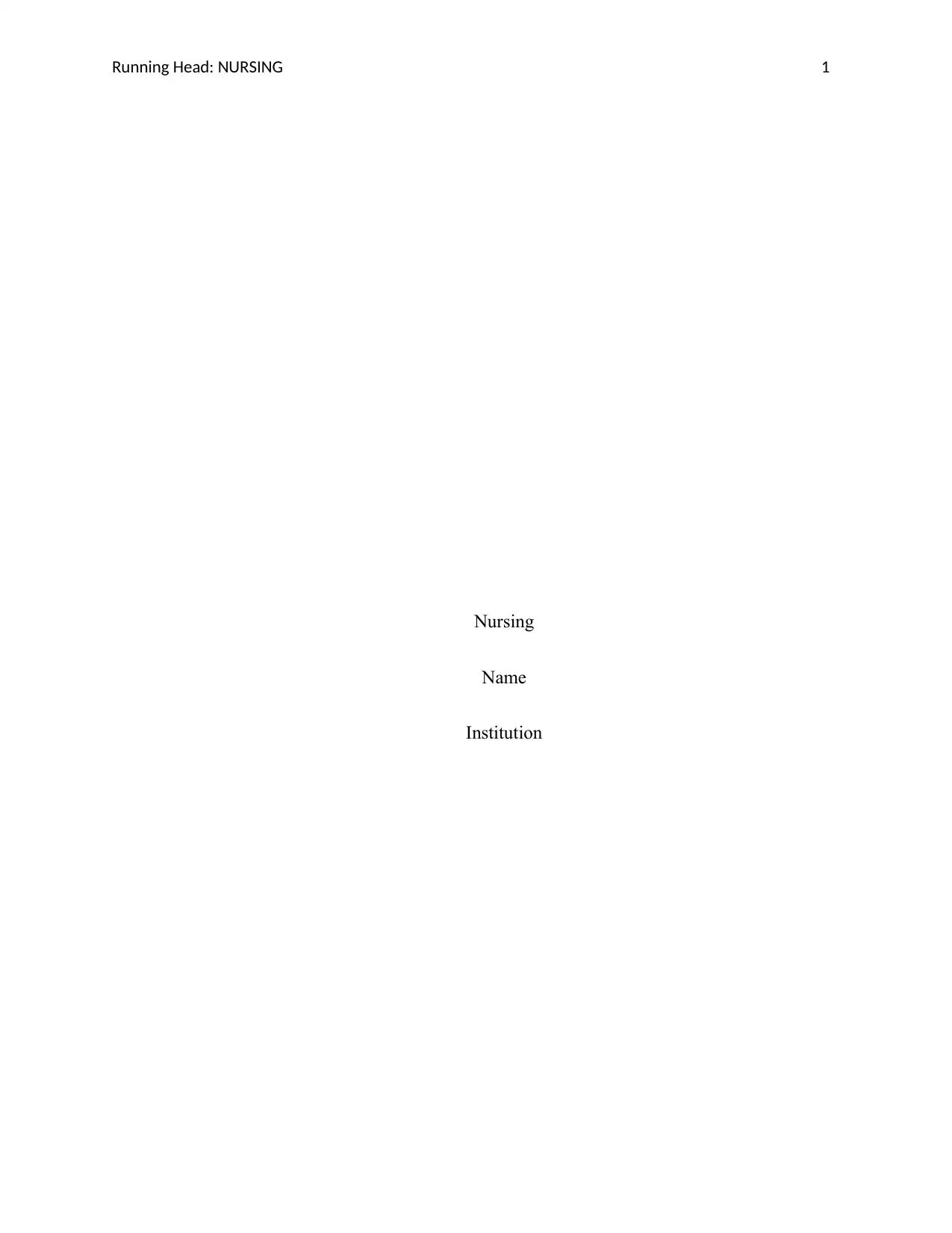
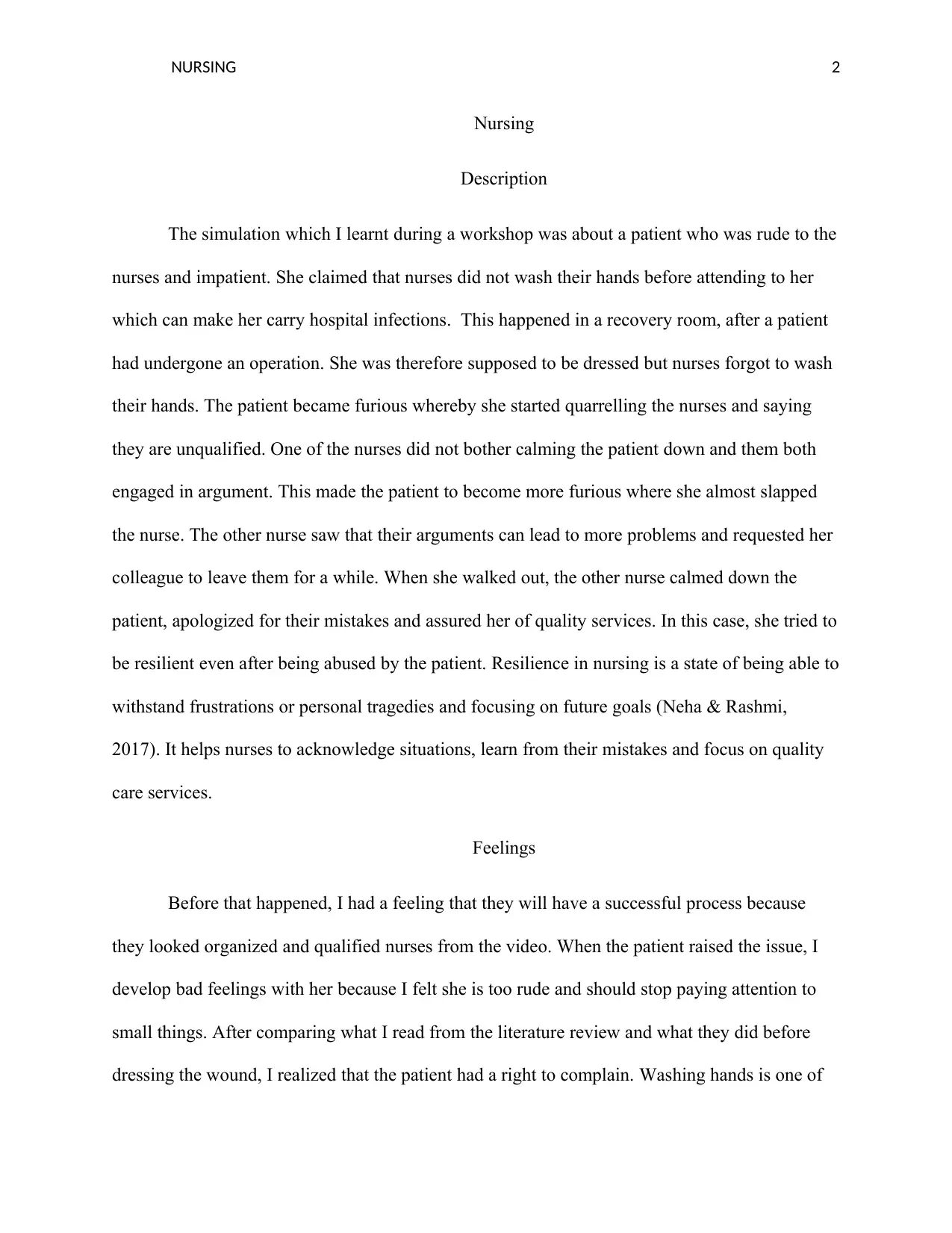
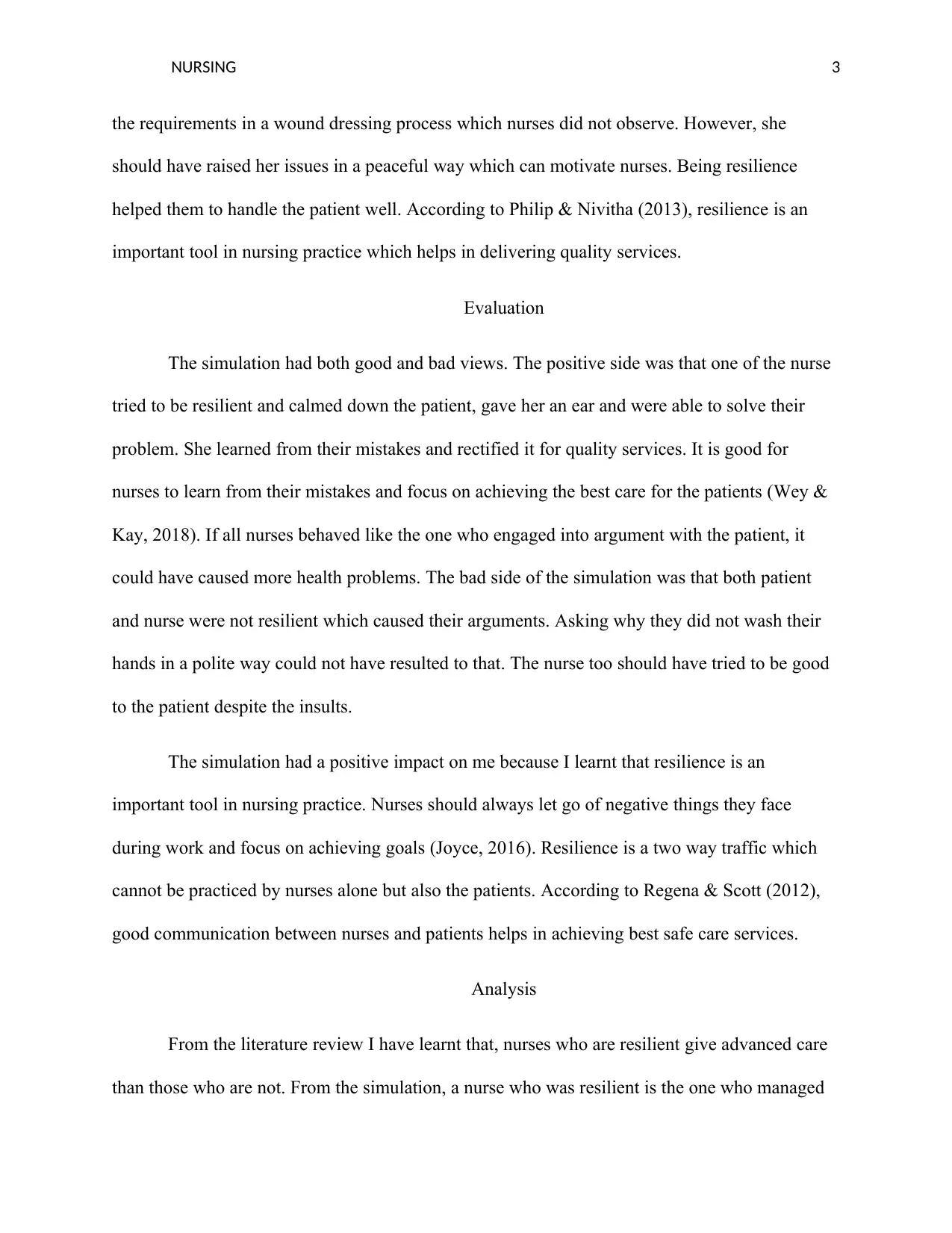

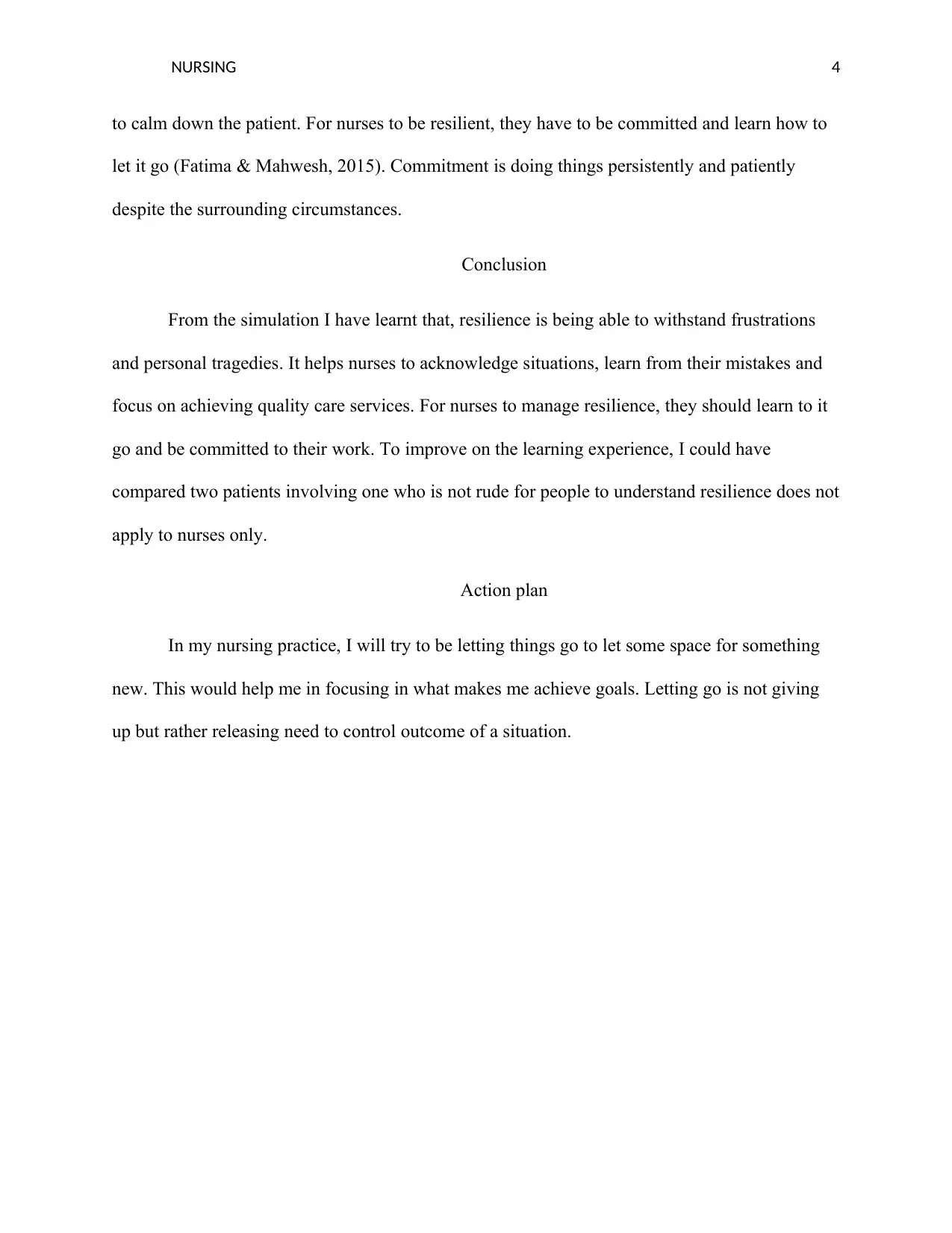
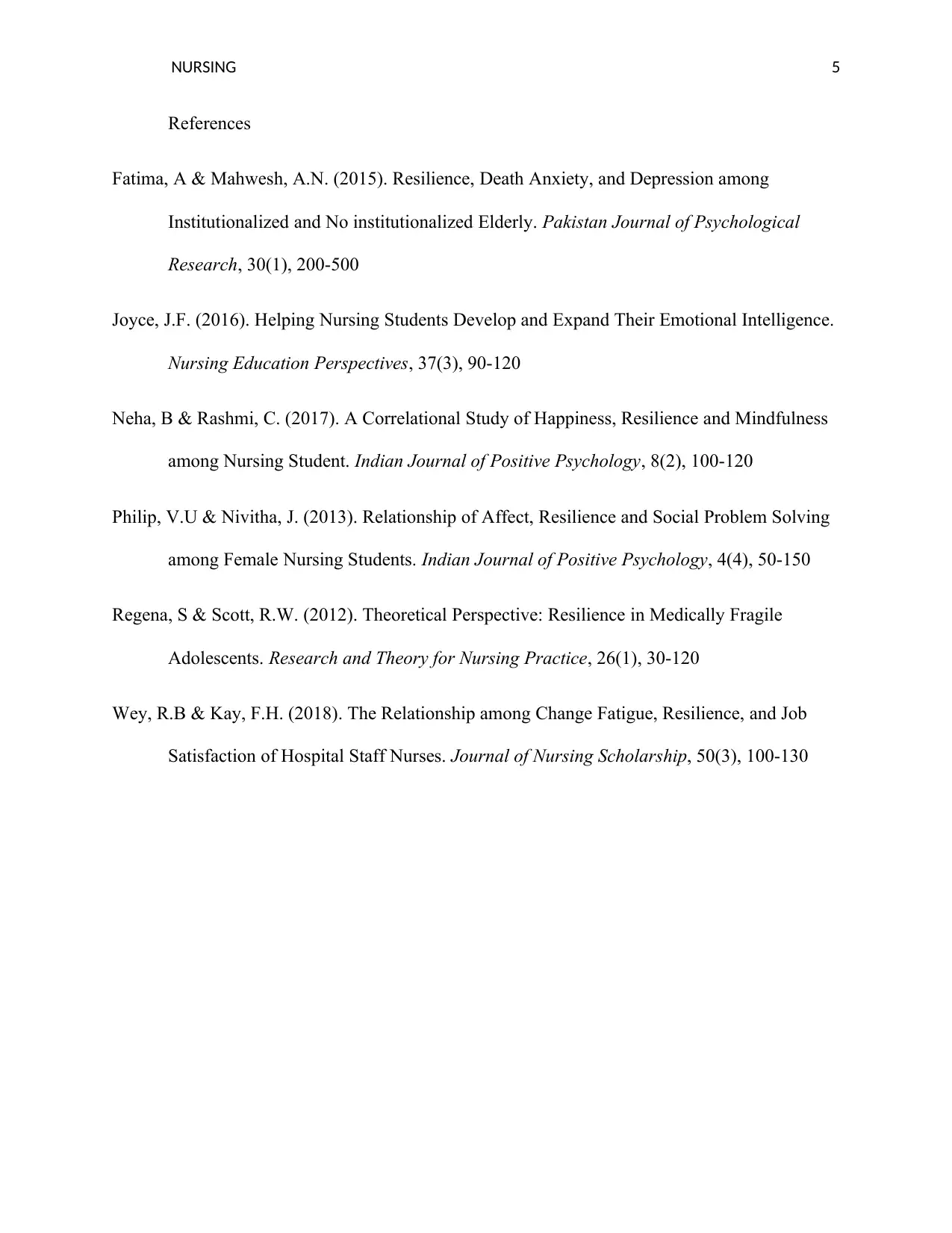






![[object Object]](/_next/static/media/star-bottom.7253800d.svg)